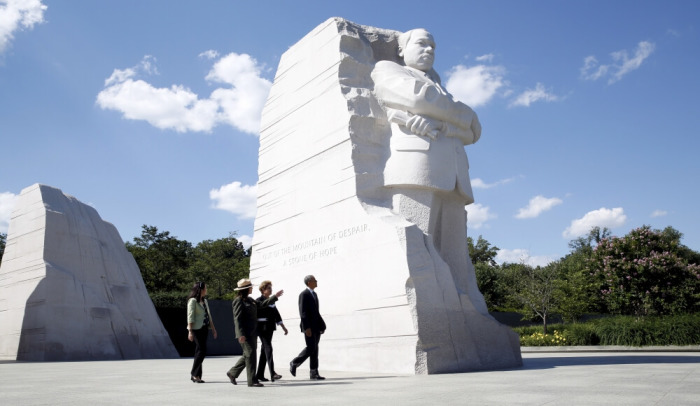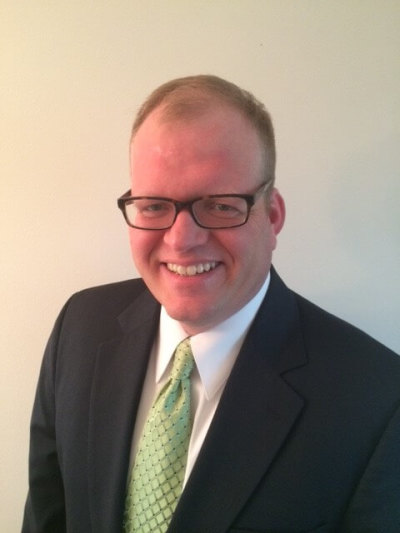Martin Luther King's Thoughts on Extremism

"Any extreme is bad. Any. And that goes for people who call themselves 'Christians' and it goes double for anyone who calls him or herself a 'fundamentalist' anything."
Such was the proclamation trumpeted last fall by Huffington Post columnist, Jenny Block, when assessing a well-known conservative Christian.
Put aside for a moment the odd fact that she made an extreme statement to tell us that all extremes are bad. Instead, let's consider her assertion. She represents the growing chorus of voices in our universities, politics, and media that insist that devotion (especially religious devotion) only causes harm, and should therefore be demeaned, if not ushered out of the public square entirely.
At first glance, it would seem that we have plenty of reasons to nod our heads in agreement with her statement. Hardly a week goes by without hearing another story about actual extremism prompting murders and kidnappings around the world. Whether it's Paris or San Bernardino, we're continually faced with horrors perpetrated by religious extremists.
But while Americans concluded long ago that violence in the name of religion is impermissible and should always be condemned, there is now a disturbing push by elites to also eject non-violent religious beliefs from the civic arena. To exercise faith in public, they argue, only causes pain.
But this year marks the tenth anniversary of religiously-motivated actions that should make us pause before we banish all beliefs to our private worlds.
On October 2, 2006, Charles Roberts stormed an Amish schoolhouse where he took hostages and shot ten girls aged 6-13, killing five, before killing himself. Roberts was not driven by religious devotion (In fact, he told his hostages, "I'm angry at God and I need to punish some Christian girls.") But his victims, fortunately, were motivated by religion.
Just hours after the horrific scene, a group from the Amish community, themselves still grieving, went to comfort the wife and family of the killer. Years later, Roberts's wife recalled, "That was such a life-giving moment, where I felt released from the burden of trying to explain Charlie's actions and instead released into a path of healing."

What made this Amish group embrace the killer's family and prompt this path of healing? Intense religious commitment. They were radically obeying the Bible's fundamental command to "forgive others as the Lord forgave you."
Lest we think the Amish actions were unique, last summer we watched a similar spirit televised from Charleston, South Carolina. After Dylann Roof killed nine men and women at a Bible study, the law forced him to listen to the victims' family members. What resulted?
The New York Times reported that, "It was as if the Bible study had never ended as one after another, victims' family members offered lessons in forgiveness, testaments to a faith that is not compromised by violence or grief."
Indeed, the believers did not compromise their faith just because they entered the government's courtroom. They did not moderate or hide their commitment to — dare I use the word? — extreme forgiveness. As a result, the nation grieved with these noble families (and, arguably also as a result, Charleston did not descend into rioting, but responded peacefully.)
To be sure, violent extremism deserves clear condemnation. But a blanket denunciation of any and all sincere commitment is shortsighted, if not dangerous, because it carries with it the pressure to numb the conscience, and to suppress the best impulses of religious beliefs ... impulses that can serve our neighbors and improve the human condition.
The Reverend Martin Luther King Jr. knew the healing powers of religious impulses, as well as the potentially stifling threat of being labeled an "extremist."
When a religious moderate chastised the jailed pastor for being too strong in his words and works against injustice, King admitted that he was "initially disappointed in being so categorized." But as he weighed the consequences of softening his stance, he later wrote that he "gained a bit of satisfaction from being considered an extremist. Was not Jesus an extremist in love — 'Love your enemies, bless them that curse you, pray for them that despitefully use you'? .... Was not Abraham Lincoln an extremist — 'This nation cannot survive half slave and half free'?"
Indeed, America is a better place today because of Reverend King, President Lincoln, the Amish community of West Nickel Mines, the families of Charleston's victims, and countless others who have radically exercised their beliefs and transcended evil through love, sacrifice, and forgiveness. And we would be wise to remember that fact as we celebrate Reverend King's life, and whenever we are urged to immediately ridicule, threaten, and silence individuals in the public square simply because their beliefs may fall outside the current majority.



























